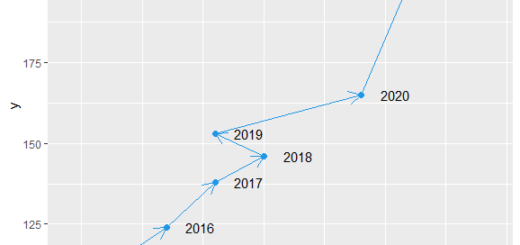Basic Functions in R
Basic Functions in R, in this tutorial, we are going to discuss basic statistical or user-defined functions. Functions are very useful in R for faster and safe execution.
Some will be inbuilt functions and others may be user-defined, here we are going to discuss very useful functions in our day-to-day life.
Basic Functions in R
Getting Data
library(datasets) data<-iris$Sepal.Length
Statistical Functions
The following commands can be used to get the mean, median, quantiles, minimum, maximum, variance, and standard deviation.
mean(data) median(data) sd(data) var(data) max(data) min(data) quantile(data) summary(data)
the summary function will provide the output based on the type of the dataset.
Naïve Bayes classification in R
Control Structures
The following are basic control structures.
if statements
if (condition) {
# code executed when condition is TRUE
} else {
# code executed when condition is FALSE
}for statements
for(i in 1:x)
{ code }while statements
while (test_expression)
{
statement
}repeat statements
repeat {
statement
}break and next statements
if (test_expression) {
break
}switch statements
switch(expression, case1, case2, case3....)
scan statements
scan(file = "")
User-defined function
Just consider one example, the following function takes a single input value and computes its square
The variable x, is a formal parameter of the function.
When the function is called it is passed an argument that provides a value for the formal parameter
Square<-function(x){x*x}
Square(5)
25
Square(10:20)
100 121 144 169 196 225 256 289 324 361 400Another one example is rep function, you can use for different purposes based on your requirements.
rep("A",4)
rep(1:5,2)
rep(1:5,rep(2,5))Sorting
order(data) [1] 14 9 39 43 42 4 7 23 48 3 30 12 13 [14] 25 31 46 2 10 35 38 58 107 5 8 26 27 [27] 36 41 44 50 61 94 1 18 20 22 24 40 45 [40] 47 99 28 29 33 60 49 6 11 17 21 32 85 [53] 34 37 54 81 82 90 91 65 67 70 89 95 122 [66] 16 19 56 80 96 97 100 114 15 68 83 93 102 [79] 115 143 62 71 150 63 79 84 86 120 139 64 72 [92] 74 92 128 135 69 98 127 149 57 73 88 101 104 [105] 124 134 137 147 52 75 112 116 129 133 138 55 105 [118] 111 117 148 59 76 66 78 87 109 125 141 145 146 [131] 77 113 144 53 121 140 142 51 103 110 126 130 108 [144] 131 106 118 119 123 136 132
You try for reverse sorting also based on rev function.
rev(order(data)) [1] 132 136 123 119 118 106 131 108 130 126 110 103 51 [14] 142 140 121 53 144 113 77 146 145 141 125 109 87 [27] 78 66 76 59 148 117 111 105 55 138 133 129 116 [40] 112 75 52 147 137 134 124 104 101 88 73 57 149 [53] 127 98 69 135 128 92 74 72 64 139 120 86 84 [66] 79 63 150 71 62 143 115 102 93 83 68 15 114 [79] 100 97 96 80 56 19 16 122 95 89 70 67 65 [92] 91 90 82 81 54 37 34 85 32 21 17 11 6 [105] 49 60 33 29 28 99 47 45 40 24 22 20 18 [118] 1 94 61 50 44 41 36 27 26 8 5 107 58 [131] 38 35 10 2 46 31 25 13 12 30 3 48 23 [144] 7 4 42 43 39 9 14
cbind function
Suppose if you want to combine the data frame, matrix or vectors, you can use cbind functions.
a<-c(1,2,3) b<-c(4,5,6) cbind(a,b) a b [1,] 1 4 [2,] 2 5 [3,] 3 6
rbind function
Suppose if you want to do row binding then rbind function will be handy.
a<-c(1,2,3) b<-c(4,5,6) rbind(a,b) [,1] [,2] [,3] a 1 2 3 b 4 5 6
Conclusion
There are a lot of functions available, above mentioned functions will be useful for solving day-to-day data arrangement problems.
Some useful functions are here
identical() sum() paste() na.omit() is.na() is.logical() stopifnot() length()
You can comment if any other useful functions in the comment section.





